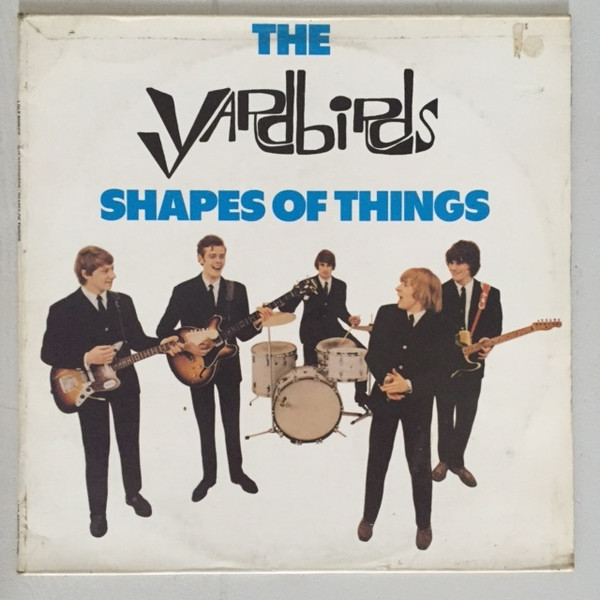Shapes of Things – The Yardbirds

“Shapes of Things” by The Yardbirds is a landmark track that exemplifies the innovative spirit and evolving sound of the 1960s rock scene. Released as a single in 1966, this song is celebrated for its pioneering use of psychedelic elements, powerful guitar work, and thoughtful lyrics that address pressing social issues. This essay delves into the musical composition, lyrical content, and cultural impact of “Shapes of Things.”

The musical composition of “Shapes of Things” is notable for its fusion of rock and psychedelic influences, creating a sound that was ahead of its time. The song opens with an urgent, driving beat and a compelling bass line that immediately draw the listener in. One of the defining features of the track is Jeff Beck’s innovative guitar work. Beck’s use of feedback, sustain, and unconventional playing techniques helped to push the boundaries of rock guitar and set a new standard for the genre. His solos, particularly the use of reverb and distortion, added a futuristic and otherworldly quality to the song, contributing to its psychedelic feel.
The rhythm section, consisting of drummer Jim McCarty and bassist Paul Samwell-Smith, provides a solid and dynamic foundation that complements Beck’s guitar work. The use of syncopation and varied tempos within the song adds to its complexity and keeps the listener engaged. The vocal performance by Keith Relf is both passionate and earnest, delivering the song’s message with conviction.

Lyrically, “Shapes of Things” addresses themes of change, uncertainty, and social consciousness. The lyrics reflect the anxieties and aspirations of the 1960s, a time of significant social upheaval and transformation. Lines such as “Shapes of things before my eyes / Just teach me to despise / Will time make man more wise?” and “Please don’t destroy these lands / Don’t make them desert sands” convey a sense of urgency and concern for the future. The song’s chorus, “Come tomorrow, will I be older? / Come tomorrow, may be a soldier,” underscores the uncertainty and fear of what the future might hold, particularly in the context of the escalating Vietnam War and the burgeoning counterculture movement.
The song’s narrative unfolds with a blend of introspection and activism, urging listeners to reflect on the impact of human actions on the world and the need for wisdom and responsibility. This blend of personal and social commentary resonates with the listener, making “Shapes of Things” not just a musical experience but also a call to awareness and action.

Culturally, “Shapes of Things” was a significant contribution to the burgeoning psychedelic rock movement. The Yardbirds’ experimentation with sound and their integration of socially conscious lyrics helped to pave the way for future artists in the genre. The song’s innovative guitar techniques and production values influenced many musicians and bands, including some of the most prominent figures in rock history.
The song’s impact extended beyond its initial release, as it became a blueprint for the psychedelic rock sound that would dominate the latter half of the 1960s. Its success helped to solidify The Yardbirds’ reputation as one of the most innovative and influential bands of the era. The track is often cited as a precursor to the more experimental and boundary-pushing work that would characterize the rock music of the late 1960s and early 1970s.

In conclusion, “Shapes of Things” by The Yardbirds is a groundbreaking song that combines innovative musical composition with thoughtful and provocative lyrical content. Its pioneering use of psychedelic elements, powerful guitar work, and socially conscious message create a compelling and timeless listening experience. The song’s cultural impact and enduring popularity have solidified its place as a classic in rock music history. “Shapes of Things” continues to resonate with listeners, offering a reflection on the challenges and possibilities of change, both personal and societal.











